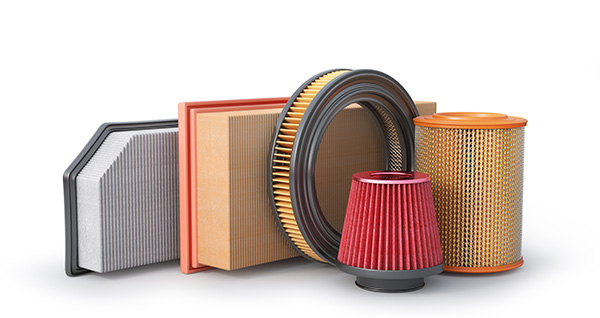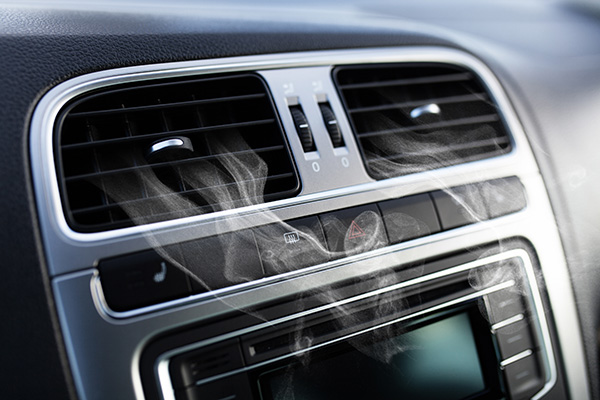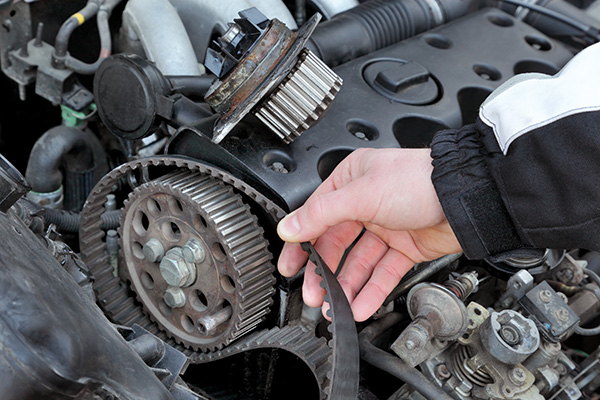Posted on 10/31/2024

When you think about maintaining your car, things like oil changes, tire rotations, and brake checks probably come to mind. But have you ever considered the role your car's filters play? Car filters work quietly in the background to keep your vehicle running by blocking out harmful contaminants. Each filter has its own specific function, and understanding the different types can help you ensure your car is performing at its best. Engine Oil Filter The engine oil filter is perhaps the most well-known of all car filters. Its job is pretty straightforward: it filters the oil in your engine, removing dirt, debris, and metal particles. This keeps the oil clean and ensures that it can do its job of lubricating the engine components. Over time, as oil circulates through the engine, it picks up contaminants that, if left unchecked, could cause severe damage to the engine’s internal parts. The oil filter catches these contaminants ... read more
Posted on 9/27/2024

Lexus is renowned for its luxury, reliability, and smooth driving experience, but like any other vehicle, it’s not immune to occasional problems. Even the best cars can have their quirks, and Lexus models are no exception. Whether you’re a proud Lexus owner or are considering buying one, it's good to know what issues are commonly reported. Understanding these concerns can help you stay ahead of maintenance and avoid expensive repairs. So, what are the seven most common problems in Lexus cars? 1. Transmission Problems Lexus drivers have reported car transmission issues, particularly in older models. Symptoms often include delayed shifting, hesitation during acceleration, or even a complete transmission failure. These issues can be attributed to wear and tear over time or improper fluid levels. Regular transmission fluid changes and check-ups can prevent ma ... read more
Posted on 8/30/2024

There’s nothing quite as alarming as catching a whiff of exhaust fumes inside your car. It’s not only unpleasant but can also be a sign of a serious issue that could impact your health and your vehicle's performance. But what exactly causes this smell, and why should you be concerned? Let’s explore the common reasons behind this issue and what you can do to resolve it. The Danger of Exhaust Fumes First things first—why is the smell of exhaust fumes in your car such a big deal? Exhaust fumes contain a mix of harmful gasses, including carbon monoxide, which can be deadly in high concentrations. If these fumes are making their way into your car's cabin, you're not just dealing with a bad odor; you're potentially exposing yourself and your passengers to toxic substances. Prolonged exposure can lead to headaches, dizziness, nausea, and even more severe health issues. So, if you notice this smell, it’s important to take ... read more
Posted on 7/26/2024

Ever wondered what keeps your car's engine running? The timing belt plays a crucial role in the myriad components under your car's hood. Understanding the timing belt, its importance, and how to maintain it can save you from unexpected breakdowns and costly repairs. So, let's look into everything you need to know about timing belts. What Is a Timing Belt and What Does It Do? The timing belt, often made of rubber with high-tensile fibers, is a vital part of your car's engine. Its main function is to synchronize the rotation of the crankshaft and the camshaft. This synchronization ensures that the engine's valves open and close correctly during each cylinder's intake and exhaust strokes. In simpler terms, it keeps your engine's internal parts working in perfect harmony. Without a properly functioning timing belt, your engine's valves could collide with the pistons, leading to severe engine damage. This synchronization is crucial for mai ... read more
Posted on 6/27/2024

When it comes to reliability and longevity, Toyota often tops the list. However, even the best vehicles can encounter issues over time. For Toyota owners, knowing the most frequent problems and how to address them is important for maintaining their vehicle's performance and safety. Let's explore the common Toyota issues, their symptoms, and what you can do to prevent or fix them. Transmission ProblemsRecognizing Transmission IssuesTransmission issues are a common concern for Toyota owners, particularly in models like the Camry and Corolla. Symptoms of transmission problems include delayed shifting, slipping gears, and a rough or shuddering sensation when accelerating. These issues are often caused by worn-out transmission fluid, faulty solenoids, or damaged clutch components. Prevention and Maintenance Regular maintenance is k ... read more